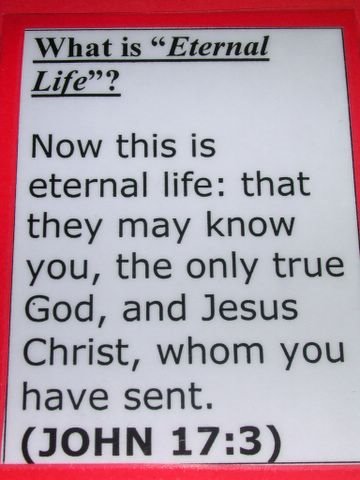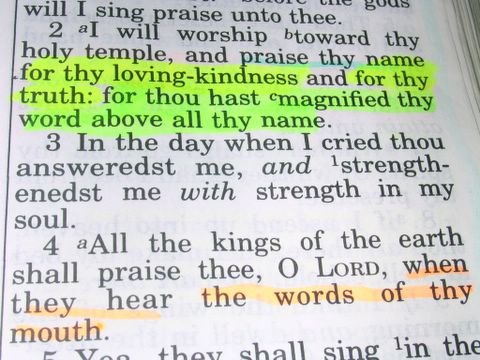Thursday, April 20, 2006
ETERNAL LIFE, anyone?!?!

When asked about when eternal life begins, most would reply that it starts after we die. Jesus Himself declared that it begins with (and is defined by) our relationship with Him. That is why it says in 1 John 5:11-12 "And this is the testimony, that God hath given to us eternal life, and this life is in His Son. he that hath the Son hath life; and he that hath not the Son of God hath not life."

Is it possible to LEARN how to become beautiful?! Sure! The Bible tells ladies how: "I also want women to dress modestly, with decency and propriety, not with braided hair or gold or pearls or expensive clothes, but with good deeds, appropriate for women who profess to worship God." (1 Timothy 2:9-10)
The Doctrine of Christ - Angel of the Lord
"And the Angel of the LORD found her by a fountain of water in the wilderness by the fountain in the way to Shur." (Genesis 16:7)
In the Old Testament, an angel identified as the "angel of the LORD", the "angel of God" (Gen. 21:17), the "angel of His presence" (Isaiah 63:9), and the "messenger of the covenant" (Malachi 3:1) appeared to individuals. A closer look at the context of His appearances reveals that He is more than another angel: He is God. The expression usually signifies a preincarnate appearance of Christ, and is sometimes called a "Christophany", meaning the visible and bodily manifestation of God the Son before His incarnation.
Illustration: That He is not merely another angel is evident in those appearances where He is called God. This was recognized by Hagar (Gen. 16:13), Abraham (Gen. 22:14), Moses (Ex. 3:14), Gideon (Judges 6:22), and Manoah (Judg. 13:18, 22). The expression is also used of men, but on such occasions is translated "the LORD's messenger" (Hag. 1:13).
Application: The Angel of the Lord no longer appears to men today, since God has commissioned Christians to be His messengers to the world.
In the Old Testament, an angel identified as the "angel of the LORD", the "angel of God" (Gen. 21:17), the "angel of His presence" (Isaiah 63:9), and the "messenger of the covenant" (Malachi 3:1) appeared to individuals. A closer look at the context of His appearances reveals that He is more than another angel: He is God. The expression usually signifies a preincarnate appearance of Christ, and is sometimes called a "Christophany", meaning the visible and bodily manifestation of God the Son before His incarnation.
Illustration: That He is not merely another angel is evident in those appearances where He is called God. This was recognized by Hagar (Gen. 16:13), Abraham (Gen. 22:14), Moses (Ex. 3:14), Gideon (Judges 6:22), and Manoah (Judg. 13:18, 22). The expression is also used of men, but on such occasions is translated "the LORD's messenger" (Hag. 1:13).
Application: The Angel of the Lord no longer appears to men today, since God has commissioned Christians to be His messengers to the world.





